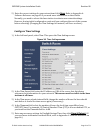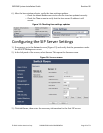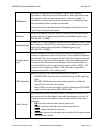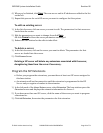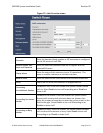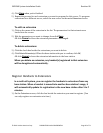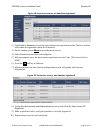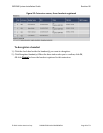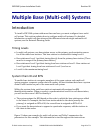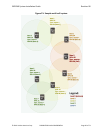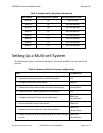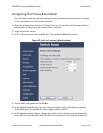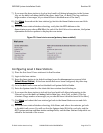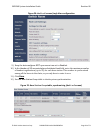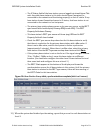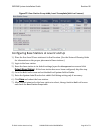
EXP1240 System Installation Guide Revision 06
© 2013 Uniden America Corp. PROPRIETARY AND CONFIDENTIAL Page 29 of 71
Multiple Base (Multi-cell) Systems
Introduction
To install a EXP1240 system with more than one base, you must configure it as a multi-
cell system. This section explains how to configure multi-cell systems. For detailed
information on multi-cell operation and the difference between single and multi-cell
systems, see the Network Planning Guide.
Timing Levels
• In multi-cell systems, one base station serves as the primary synchronization source
for all the other base stations. This base station is considered at timing Level 0.
• Base stations at Level 1 get their timing directly from the primary base station. (These
must be in range of the primary base station.)
• Base stations at Level 2 get their timing from base stations at Level 1. Base stations at
Level 3 get their timing from base stations at Level 2, and so on.
• Level 6 is the maximum timing level.
System Chain ID and RPN
To enable base stations to recognize members of the same system, each multi-cell
system requires a separate system chain ID number. All base stations that share a system
chain ID will function as part of the same multi-cell system.
Within the system chain, each base station is automatically assigned an
RPN
identification number. When you select a synchronization source for each base station,
you will use the source's RPN to identify it.
• The system assigns the RPN based on the order in which the base stations are added
to the chain. For example, the first base station added to the chain (usually the
primary) is assigned an RPN of 00, the second base is assigned an RPN of 04.
• If you want the base stations to appear in a particular sequence, add the stations to
the chain in that order.
Figure 21 shows an example of a multi-cell system, and Table 5 summarizes the
parameters for this example. This information is used throughout the instructions.



